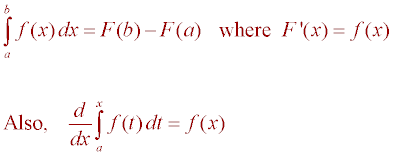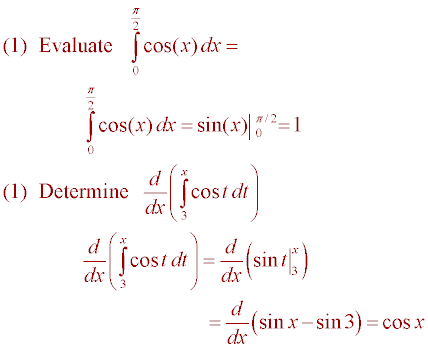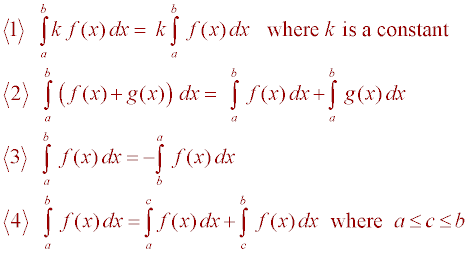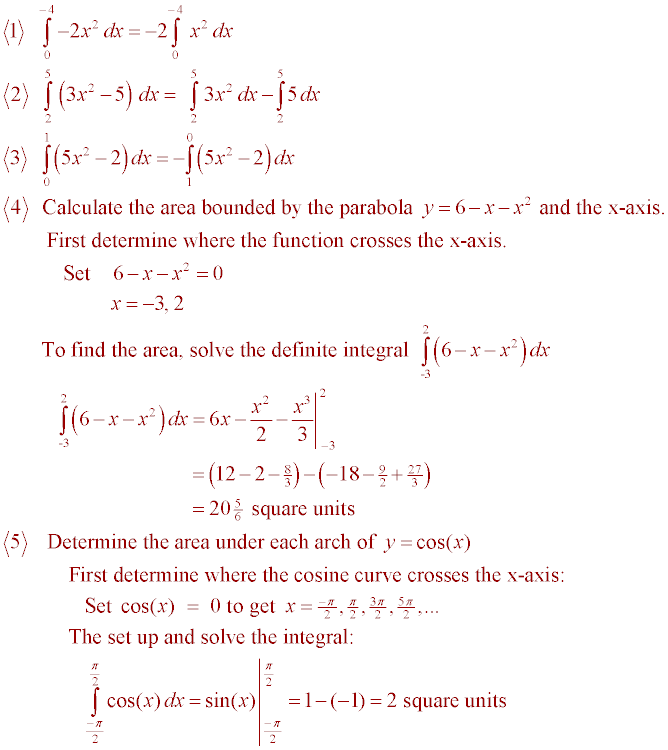Quote of the Day:
"It is clear that Economics, if it is to be a science at
all, must be a mathematical science ... simply because
it deals with quantities...
As the complete theory of almost every other science
involves the use of calculus, so we cannot have a true
theory of Economics without its aid."
-- W. S. Jevons
Objectives:
The student will learn the properties of the definite
integral and apply them when solving integrals.
The student will learn the Fundamental Theorem of Calculus and apply it.
1. Bellringer -- Numerical Word Search (in groups)
2. The Fundamental Theorem of Calculus
Each branch of mathematics has a fundamental theorem
associated with it.
The Fundamental Theorem of Arithmetic:
Any positive integer can be represented in exactly
one way as a product of primes.
The Fundamental Theorem of Algebra:
Every polynomial of degree n has exactly n zeros.
The Fundamental Theorem of Geometry:
No theorem wears this title, but perhaps the
Pythagorean Theorem deserves it.
The Fundamental Theorem of Calculus — there are
actually two parts to this theorem:
The First Fundamental Theorem of Calculus:
The derivative of the integral of a function
is equal to the function.
The Second Fundamental Theorem of Calculus:
The integral of the derivative of a function is
is equal to the function evaluated at its
endpoints.
The F.T.C. tells us that we can evaluate a definite
integral by taking an indefinite integral and
substituting in the endpoints and taking the
difference:
 Remember that you can't spell FUNDAMENTAL without FUN (and MENTAL, and DA).
So, think of The Fundamental Theorem of Calculus as DA MENTAL FUN.
3. Examples:
Remember that you can't spell FUNDAMENTAL without FUN (and MENTAL, and DA).
So, think of The Fundamental Theorem of Calculus as DA MENTAL FUN.
3. Examples:
 4. Properties of the Definite Integral
4. Properties of the Definite Integral
 5. Examples of the Properties of the Definite Integral
5. Examples of the Properties of the Definite Integral
 6. Assignment
p. 394 (15, 16, 19, 20, 21)
p. 406 (3, 6, 9, 11, 13)
6. Assignment
p. 394 (15, 16, 19, 20, 21)
p. 406 (3, 6, 9, 11, 13)
Click here to go to the next page
Remember that you can't spell FUNDAMENTAL without FUN (and MENTAL, and DA). So, think of The Fundamental Theorem of Calculus as DA MENTAL FUN. 3. Examples:
4. Properties of the Definite Integral
5. Examples of the Properties of the Definite Integral
6. Assignment p. 394 (15, 16, 19, 20, 21) p. 406 (3, 6, 9, 11, 13)